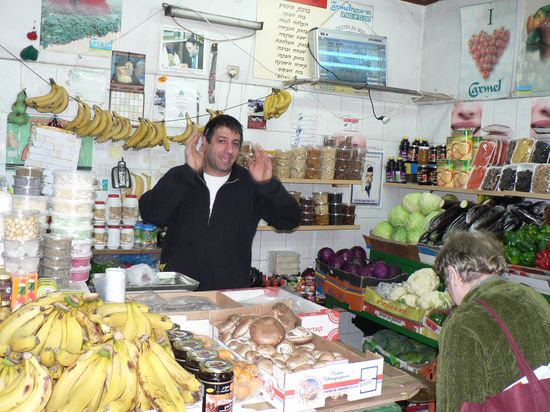
When your child is diagnosed with a disability like autism, you face an obstacle course of many dilemmas. I've written quite a few posts about the difficulties of accepting the news and adapting. The challenges are hard, but I'd like to tell about one challenge that bore wonderful fruit and made my life better.
One unique challenge you face early on is the question of whether or not to tell people about your child's newly-diagnosed disability.
Different people have different attitudes about their privacy. Some prefer to keep everything to themselves and shut out the world. Others use discretion about whom they should tell what. Yet others wear their hearts on their sleeve.
When you are crushed from the news, you need someone to share it with. You tell your brothers and sisters. You might tell your parents. Some friends you really trust. But what about everyone else?
Some parents think society will turn its back on them if they tell about their child's challenges; that other parents might want to keep their children away from their child; that people would talk behind their backs, and worse -- turn their backs on them.
I think everyone should adopt the behavior that makes them feel comfortable. But let me tell you what I did when my son was diagnosed at the age of 2.
I told everyone.
Everyone. My family, friends, the parents of my son's friends. I told my old neighbor on the second floor where we live, who had always been kind to us. I told Moshe, the owner of the vegetable shop across the street. I told the IRS clerk.
Why I chose to tell my family and friends is quite obvious; I shared because I trust them and need their support and I always share the truth with them. When I told friends who have children, I used a different wording and attitude than with friends who didn't have children. I took a different approach when I told friends who were familiar with the whole agonizing process of the diagnosis than friends who hadn't been in the loop. It took me some time to say to my wonderful, supportive mother the A-word, autism, for example, but I did explain to her in every other way why her grandchild was different than most children.
I told my bosses at work. They were amazingly supportive and caring, and they immediately let me know that they will do anything they could to help me. It was an amazing hug and vote of confidence. Many colleagues became close friends and offered support after I had told them.
I told Moshe, the vegetable store owner, because he was a really nice, outgoing man, who would come out from behind his counter each time we went in the store. He'd come out and talk to my son, show him the merchandise, offer him a banana and show delight and interest in everything he did. Moshe, once I told him about Tal, proved to be a latent speech and play therapist, and whenever I go in that wonderful store of his -- a kingdom of colors and shapes and textures, a great place for children -- he keeps Tal busy for a few minutes while the other customers wait and smile at them.
Moshe in his wonderful store. He has a knack for play therapy. Photo: Dafna Maor
I am really lucky to be living in a society that is amazingly friendly to children. In my travels around the world, I have never seen a place as tolerant of children's presence and antics as Israel is. It goes to such extremes that Israeli children might look unruly to Europeans, but the point is: people here adore children and give them a lot of positive attention.
And so I've discovered that friends and acquaintances, neighbors and even complete strangers can be supportive and helpful. Not everyone is, but many are. I was very lucky to discover that not one friend turned his or her back on me, kept their children away, or treated me differently in a negative way afterwards.
It was good to be out of the closet.
And as for the IRS people -- that's for my next post.
